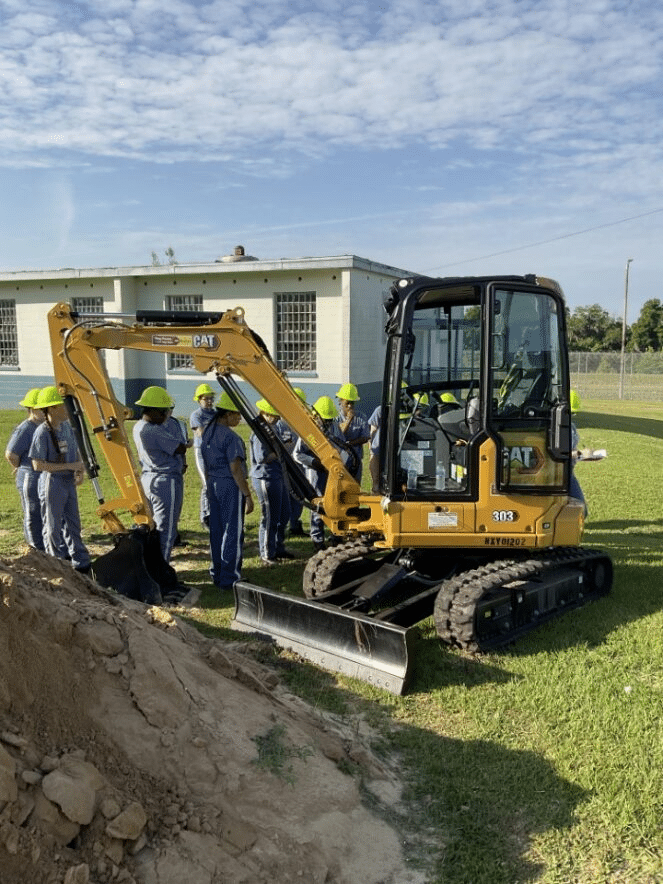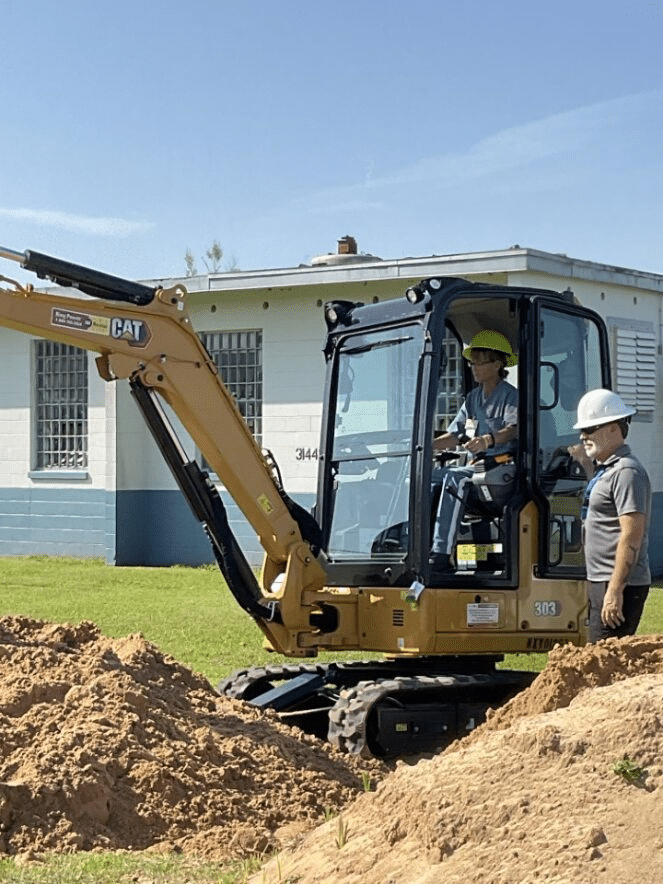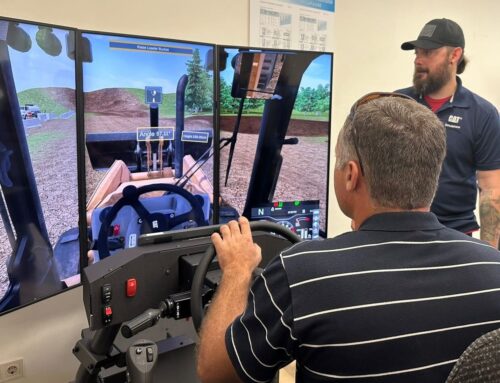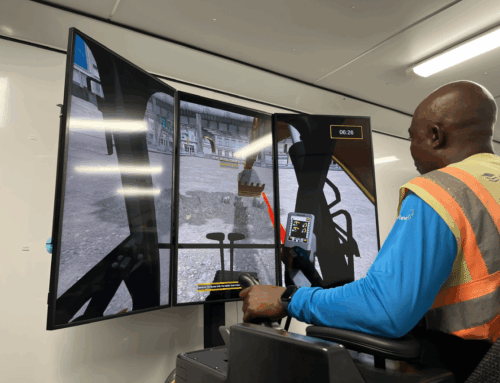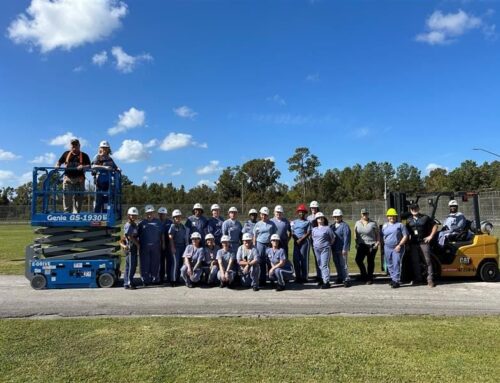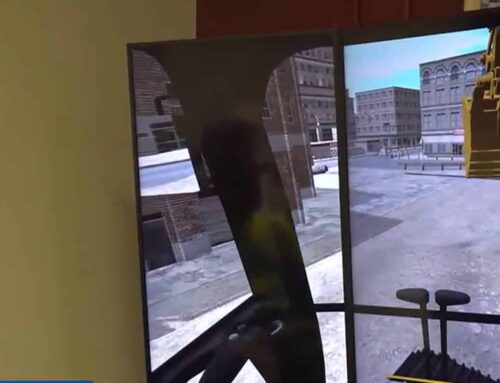Women at Lowell Correctional Institution Build Heavy Equipment Skills Using Cat® Simulators Systems
“Can I do this? I’ve never even stood next to an Excavator or Dozer, let alone run one,” she thought. With a mix of nerves and determination, she walked through the classroom door and made her way to her seat. She couldn’t believe she had signed up for the Heavy Equipment Operator program. She was sure this would be one of the most challenging things she’d ever done in her life. She had made some bad decisions before. Was this another one? She hoped not.
Her determination was stronger than her doubts. “I can do this. I WANT to do this,” she said out loud. Seeing other women inmates around her nodding in agreement, she knew she was ready. She was ready to start preparing for the day she would be released and the career she hoped would await her after she learned how to operate heavy equipment.
In July 2023, the Florida Department of Corrections (FDC), in partnership with the Florida Foundation for Correctional Excellence (FFCE), expanded its Heavy Equipment Operator (HEO) program at the Lowell Correctional Institution in Ocala, Fla., to include female inmates to help reintegrate them back into society. Part of this expansion included adding Cat® Simulator systems to train the women how to operate Excavators, Dozers and Compact Track Loaders.
However, the women enrolled in the program are not just learning a skill; they are gaining renewed hope for their future beyond prison walls. They are learning the skills needed to operate heavy equipment effectively and safely–skills that could potentially transform their lives.
“It’s approximately a 10-month program, and we usually have about 20 students enrolled at a time,” said Adam Ryalls, Florida Department of Corrections, Education Technology Coordinator for Region Three. “It’s full-time, five days a week, six hours a day.”
“We have one instructor teaching the class who lectures part of the day, and then the women are on simulators the other part of the day,” said Ryalls, who explained that the course is an open enrollment model. “The course is structured so every woman, regardless of their skill level, can learn in the program.”
Ryalls explained that there are no hard-set requirements regarding who can participate. However, they try to prioritize the women as much as possible regarding their release date and behavior.
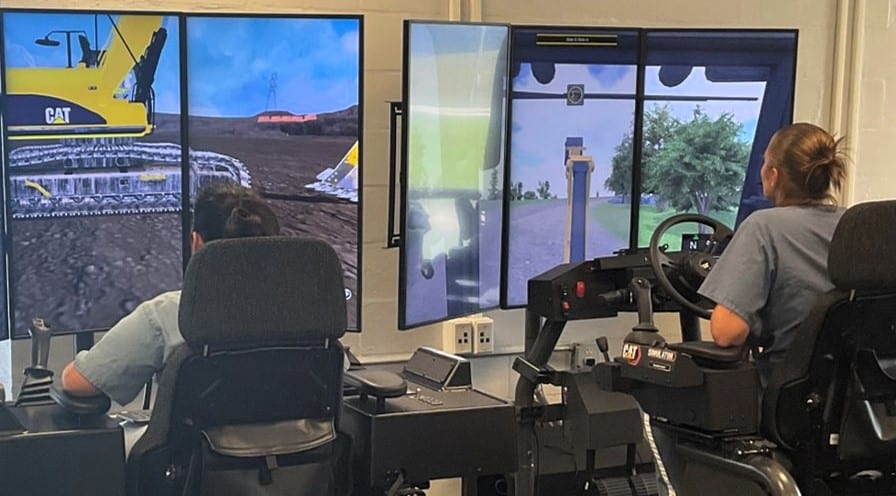
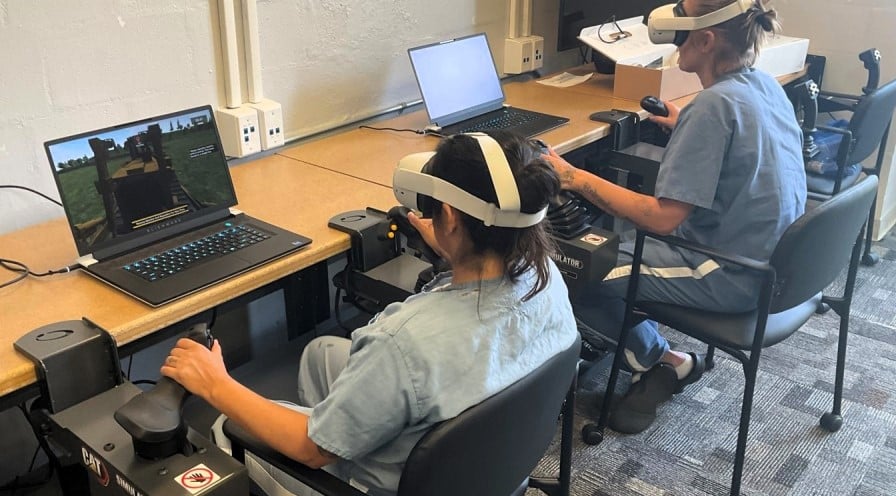
Easy Transition from Cat Simulators to Actual Excavators
After the women complete at least 32 hours of simulator training, they can experience hands-on training on actual excavators thanks to a partnership with the Ring Power Corporation, a Caterpillar dealership, which has donated an excavator to the program.
“We’ve had great feedback from the women in the program. The women have loved being able to use a real machine.” Ryalls continued, “Watching how easily they transition to the actual machine is amazing. It is 100 percent easier for them because of the authentic Cat® controls. One of the things they say right away when they sit down in the excavator is, ‘This is the same as I’ve been doing on the simulator.’”
Florida Department of Corrections, Region 3 CTE Coordinator Jarrod Mesloh echoed Ryalls. “Every single person who gets involved with this program absolutely loves it. The students adapt amazingly well to it,” said Mesloh, who previously taught both men and women inmates. “The men gravitate towards operating equipment a bit more naturally. The women are apprehensive and scared at first, but once they get on the simulator, they fall in love with it.”
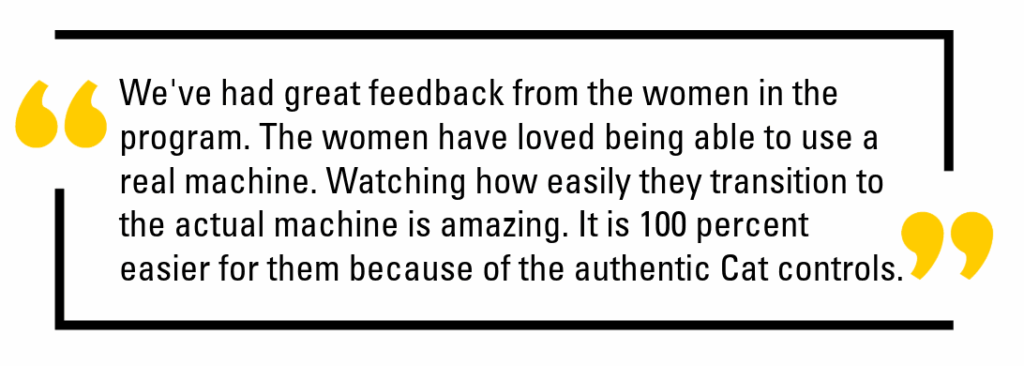
Recently, the women inmates had another chance to operate a real excavator. “We did this previously, and we’re doing it again,” explained Mesloh. “They’re going to be operating actual machinery. They love it. They love the Cat Simulators. And they love the Cat experience.”
“These women have never run heavy equipment. The only exposure they’ve had is their time on the simulators.” Mesloh continued, “When we put them on an actual Cat excavator with a big pile of dirt that they can play in, they operate the excavator like they have experience—like they’ve done it before. And it’s because of the simulators.”
After completing the 900-hour program, the women earn industry-recognized credentials, including National Center for Construction Education and Research (NCCER) Core, Heavy Equipment Level 1 and 2 certification and an OSHA 10 card.
Life After Release
The program participants range from women who have already served 25 years to some who will remain at Lowell for some time to those who will be going home soon after the class, explained Ryalls.
“Our goal is to get women who are eligible to go to work release in about 10 months or so. They’ll exit this program and go to a work release facility,” said Ryalls. “We have employers who would love to take them on who are located near the work release facility. Then the women can get some on-the-job training while they’re on work release.”

Florida Department of Corrections, Region 3 CTE Coordinator Jarrod Mesloh echoed Ryalls. “Every single person who gets involved with this program absolutely loves it. The students adapt amazingly well to it,” said Mesloh, who previously taught both men and women inmates. “The men gravitate towards operating equipment a bit more naturally. The women are apprehensive and scared at first, but once they get on the simulator, they fall in love with it.”
Recently, the women inmates had another chance to operate a real excavator. “We did this previously, and we’re doing it again,” explained Mesloh. “They’re going to be operating actual machinery. They love it. They love the Cat Simulators. And they love the Cat experience.”
Grabbing the handrail, she pulled herself into the excavator cab. As she slid into the operator’s seat, she realized she had done it. After 900 hours, she had completed the program. All her doubts were gone, along with her fear of the unknown. She knew this machine. She knew these controls. She had sat in this seat with these same controls in her hands for hours while learning how to operate this machine. And she had practiced what she was about to do countless times. Pulling her shoulders back, she grabbed the controls and confidently told herself, “I’m ready.”
